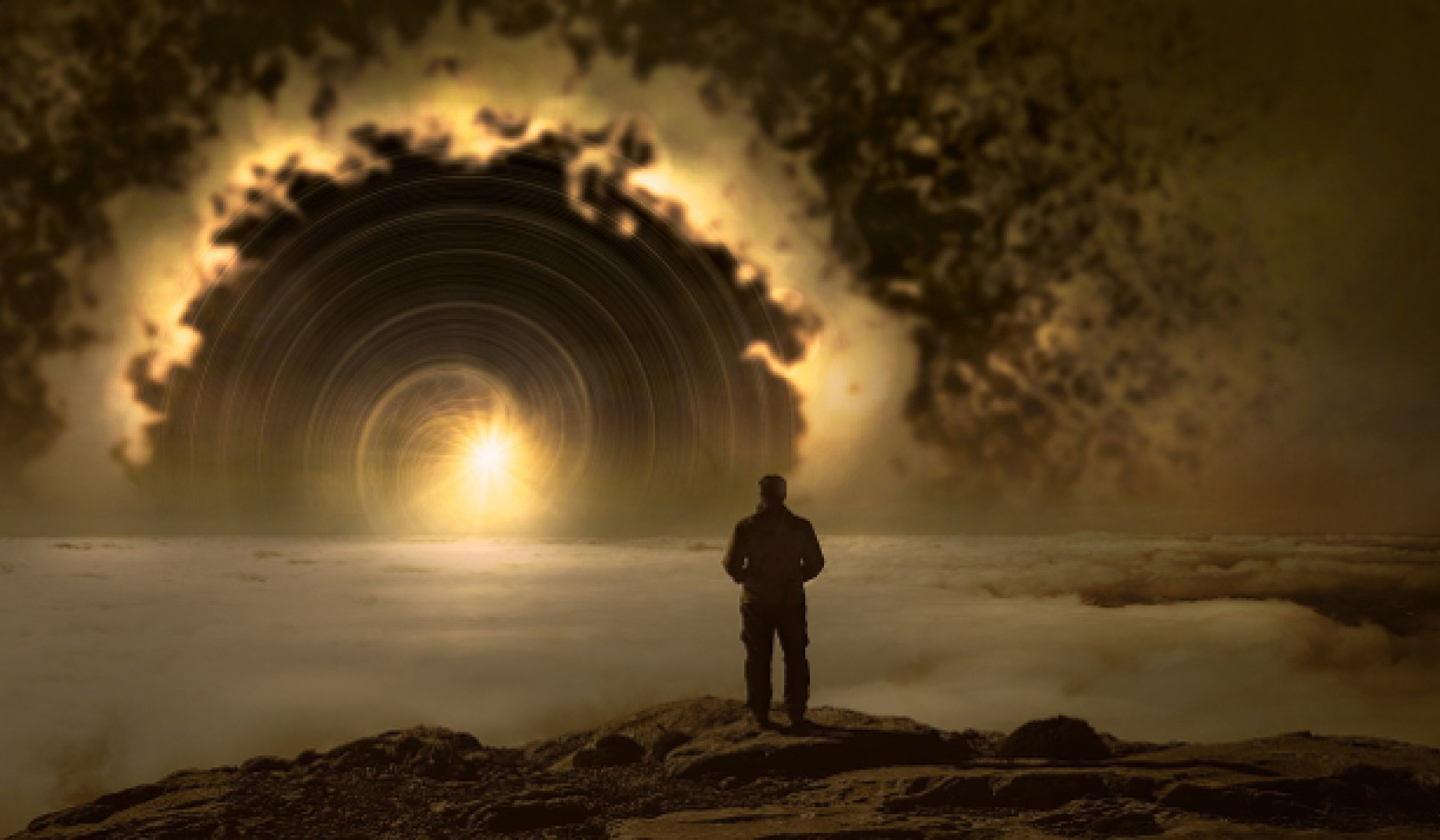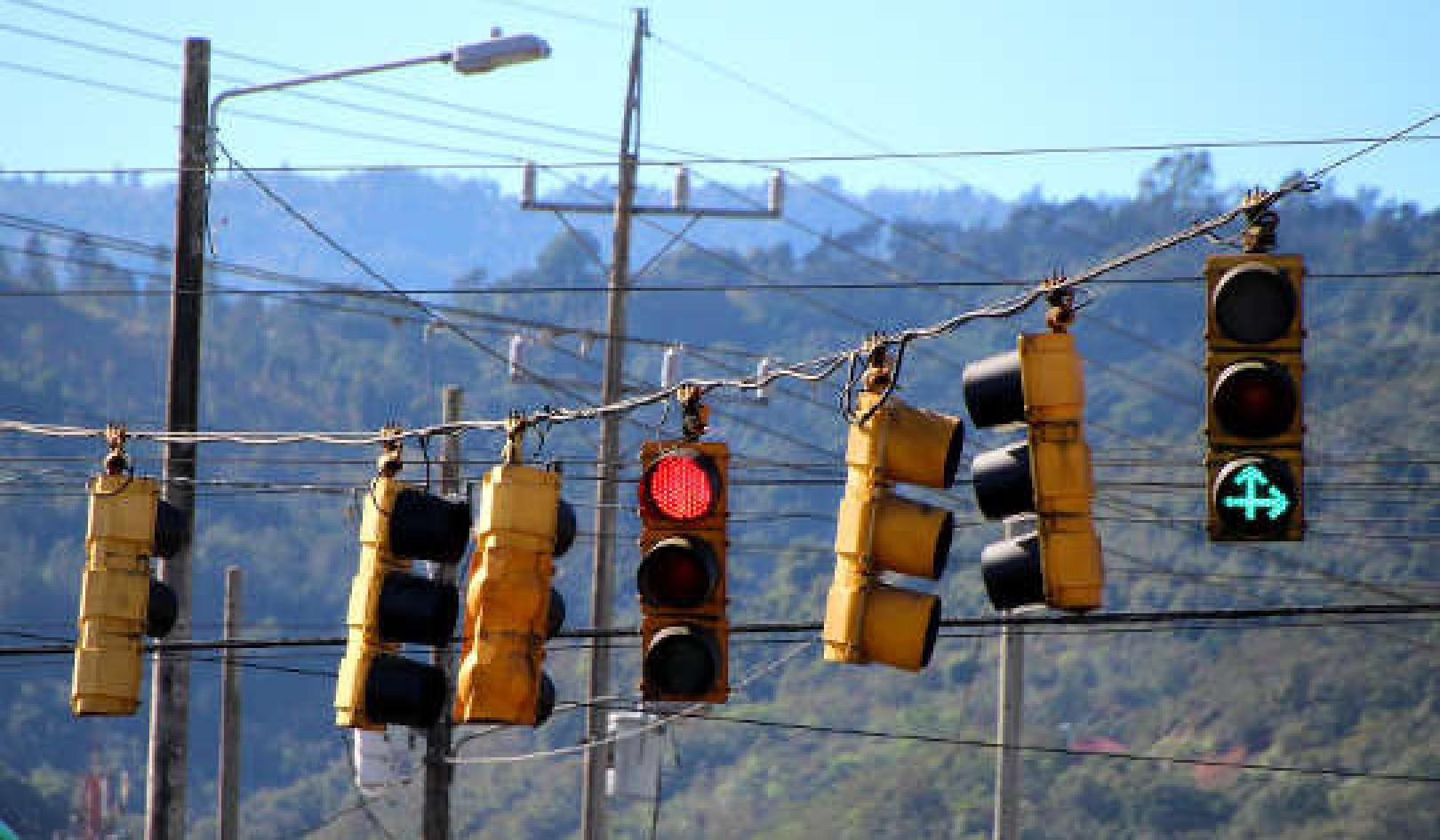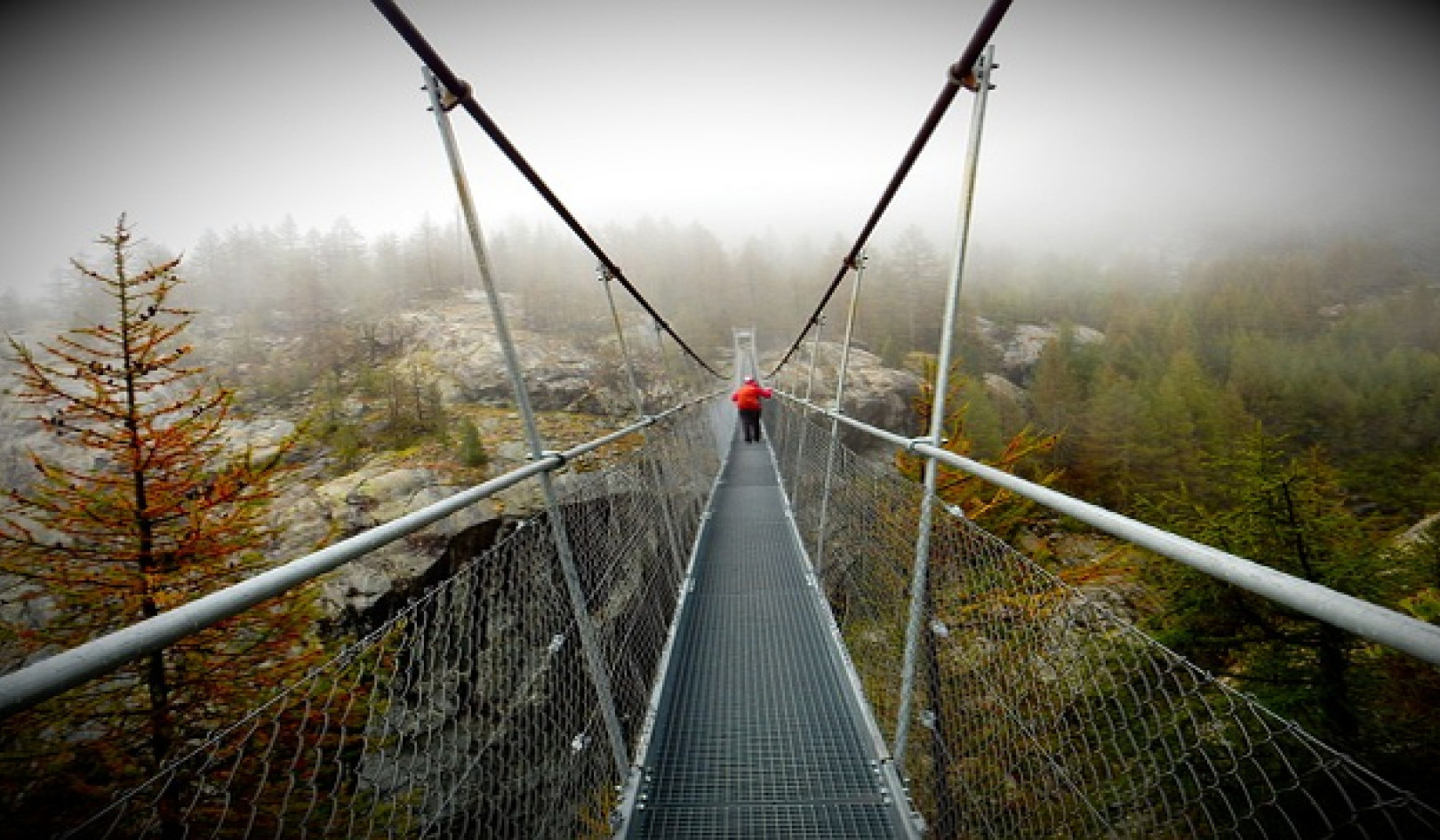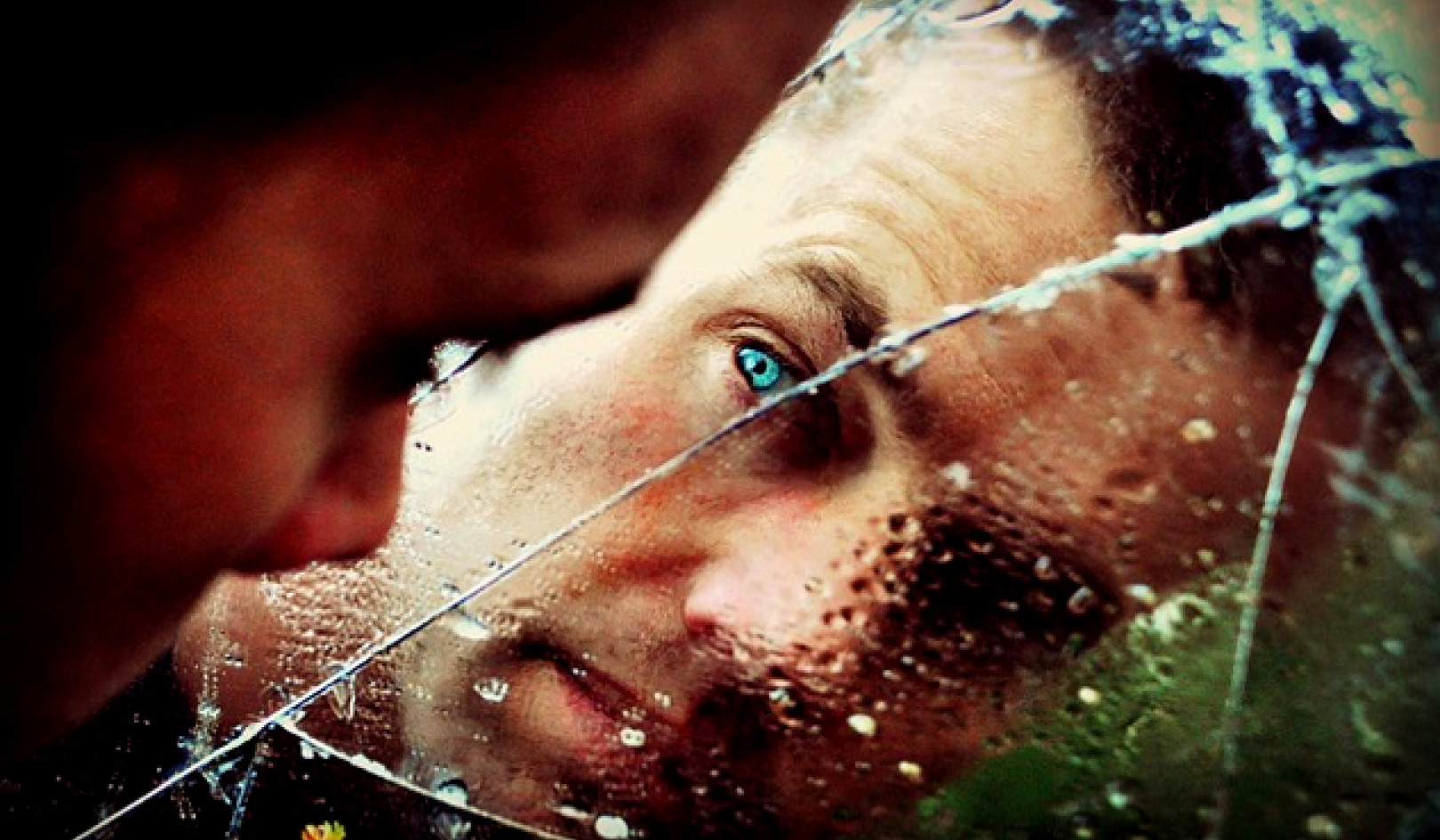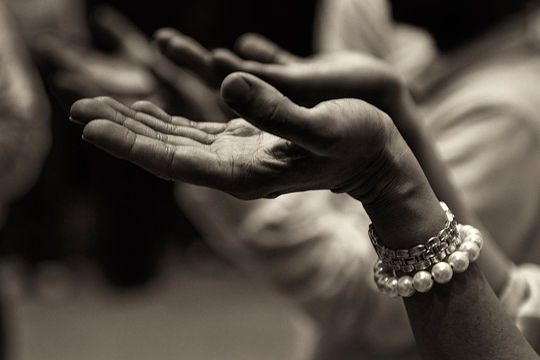
He who would save himself lives bare and calm,
He who would save the world must share its pain.
-- Sri Aurobindo, from his epic poem, Savitri
I was asked to speak about prayer to a small group of friends one night. A woman told me that gratitude was her constant prayer, and I was impressed. But as she went on, I realized that her gratitude was actually a defense against life. "I am so grateful for the sunshine, for the flowers, for the blessings of health, for my wonderful family . . ." her list went on.
"Do you express gratitude for the storms, for the illness, for the down times too?" I asked her. The look on her face told me that this was an entirely foreign concept to her. Amazingly, she had reached sixty years of age without the recognition that it all came as gift from God. She was still protecting herself against the bad things by trying to be extremely grateful for the good things.
"When we are in the midst of the 'bad' things," I remarked, unaware of exactly how this point was going to be made, "we should actually be praying, 'Knock me down harder, Lord."' I surprised myself with the words. They had come from a place deeper than the mind. Those words surprised a man in the group. "Please say more about that," he inquired in earnest, aware that these words held some potential for contemplation.
"'Knock me down harder, Lord,' is an appeal that can't come from the rational mind," I told him, relying upon the inner guidance of my teacher in that moment, since such a prayer was much too scary for me to suggest to someone else. "The idea is that such setbacks can be invaluable interventions into our rigidified programs for holiness or happiness. The hard knocks are actually wake-up calls that keep us aware and listening. And it is possible to run toward such knocks rather than away from them, once we glimpse the possibility for compassion and service that comes when we are off our high horse. It is possible to stay open in the midst of breakdown, or 'to keep the heart open in hell,' as author Stephen Levine has described, and even to ask for more. It is possible to participate in a larger arena of humanity's suffering, using our prayer as a means of transforming suffering into the substance of love."
There wasn't anything more to say in that moment. When we pray to see, to have our eyes open, to experience life in all its textures, we are rendering a request to the universe to fully participate in life -- and to celebrate that participation, joyful or heartbreaking.
"SHOW ME TRUTH."
If you lived in a protected palace, much like Prince Siddhartha did, and had been shielded from the vision of aging, disease and death, imagine the shock, the challenge, the burning question, when you first saw evidence of human suffering.
It is dangerous to see what is true in the labyrinth of illusions in which we generally slog around. Sure, we might think it would be great to know and live the truth, but do we really want it? Do we really want to know how bad things are, and how good things are? Words are cheap, of course. How often we run for cover at the first glimpse of life as it actually is.
What if you, like the Buddha Siddhartha, suddenly realized that the whole world you'd invested in was no more than a lovely theatrical stage meant to distract you from true life? What then? Would you, like Jim Carey in "The Truman Show," have the courage to walk off the set? Or like Keanu Reeves in "The Matrix," swallow the blue pill? Would you have to quit your job? Leave your husband or wife? Move to the jungle and attend to lepers? Or worse, would you have to unplug your TV; go out of your way to pick up your neighbor; speak more gently to your child?
It is dangerous to pray. It is dangerous to ask to see the multiple ways and means by which we establish separation -- the big illusion -- and dangerous to see the unflagging activity by which we struggle to keep our separation illusion fed. "I am not...," we protest. "I am not inseparable from the One ... I am not the beloved of Christ ... I am not an expression of the Buddha nature. I am not interconnected with all life." It is dangerous to see such truth because once we've seen behind the curtain it will take a lot more denial and distraction to keep this recognition, and its hounding responsibility, at bay. Once we wake up, even for a moment, to the truth of who we are and how it all fits together with the pain that is obviously around us, it is extremely difficult and more uncomfortable than ever to go back to sleep again.
Giving Up Peace of Mind?
The Fourth Way teacher E.J. Gold, in his book The Joy of Sacrifice, writes about nineteen sacrifices that serve as markers of the spiritual journey. The first sacrifice -- to which he assigns the number "0" -- is the sacrifice of peace of mind. "Wait a minute," you might be saying, "isn't peace of mind one of the main aims of the spiritual path? Is he suggesting that we end the quest before we even begin it?"
When I first heard about this sacrifice I had much the same reaction. I didn't understand it. In fact, I recoiled from the words. Instead of simply observing the discomfort of what I was feeling as a result of those words, I plunged into mental debate with Gold, objecting to what I imagined he was saying.
Reading further, however, I found that Gold was asserting something other than what I had imagined. As he explains it, this first sacrifice "is brought about simply by being exposed to the possibility of knowledge, thus having the opportunity for transformation." He means that once we hear the truth, or as he says "knowledge," we are disturbed forevermore. Such an intrusion upsets our well-arranged apple cart. We can never again rest in the bliss of unconscious distraction the way we may have allowed ourselves in the past. We might try to go off and devote our lives to nothing but fun and frolic, but always, around every corner, it will be there, this remembrance of things seen.
There is another way to read Gold's words too. (The Sufis often say that there are seven levels of truth and that by meditating on certain stories or examples one will eventually drop into new and deeper understandings.) One could read them in much the way I did when I first heard them, as if he was asking us to give up the very peace of mind that we were looking for in the spiritual life, a recommendation that my own teacher has made to his students repeatedly.
Most of us have such preconceptions about what peace is, and more likely than not, since we are products of an overstressed culture, such peace is often equated with a certain lack of tension and lack of responsibility. Our imaginations about enlightenment generally fall into the same category. We somehow think that this exalted state means that we never have to get our hands dirty again. When, quite the contrary, the great souls who manifest this state most profoundly are those who are sweating blood, working tirelessly for others. So it is that the Fourth Way master might suggest that everything, including all notions about peace of mind, must be sacrificed in order to make room for what is ultimately real. Gold's words are giving us a jump-start in this domain of prayer. Namely, we can't pray if we are not willing to accept that truth.
To pray dangerously, then, is to willingly expose ourselves to the undoing of our illusions, and to the disruption of our polite and highly-controlled means of existence. It is to throw ourselves voluntarily into the arena. It is to lay down our peace of mind so that our hunger for truth can grow. It is to lay down our peace of mind because the peace we have achieved has been a false one. It is to lay ourselves open to the chaos so that the chaos may be redeemed, or blessed.
Grasping after peace of mind, like grasping after comfort, is the surest way to discourage it. Prayer is dangerous because it undoes everything.
Reprinted with permission of the publisher,
Hohm Press. ©2001. www.hohmpress.com
Article Source
Praying Dangerously: Radical Reliance on God
by Regina Sara Ryan.
Radical reliance on God -- an utter surrender to life as it is -- reinvigorates prayer. True prayer is more than a banal plea for comfort,  a venal wish for prosperity, or a sentimental romance with a mythic figure. "Beyond the Christian tradition, Praying Dangerously: Radical Reliance on God stands out as an almost mystical approach to prayer as communion with the divine. Drawing on Sufism, Buddhism, Hinduism and Christianity, Regina Sara Ryan, a former Roman Catholic nun, writes with passion and energy about what she calls "transformational" prayer, which seeks to annihilate the individual soul in favor of union with the Divine." -- Cahners Business Information, Inc.
a venal wish for prosperity, or a sentimental romance with a mythic figure. "Beyond the Christian tradition, Praying Dangerously: Radical Reliance on God stands out as an almost mystical approach to prayer as communion with the divine. Drawing on Sufism, Buddhism, Hinduism and Christianity, Regina Sara Ryan, a former Roman Catholic nun, writes with passion and energy about what she calls "transformational" prayer, which seeks to annihilate the individual soul in favor of union with the Divine." -- Cahners Business Information, Inc.
Info/Order this paperback book. Also available in a Kindle edition.
About the Author
 Regina Sara Ryan has studied contemplation and mysticism for over thirty-five years. After leaving the convent, where she lived as a Roman Catholic nun in the 1960s and early 70s, Regina began her exploration of other religious traditions. She was particularly inspired by the lives of the great women of Hinduism, Judaism, Buddhism, Christianity and Sufism who had flourished in their dedication to God and others. Her book, The Woman Awake, recounts the stories of twenty-four of these remarkable women. Since meeting her own spiritual teacher, the Western Baul master Lee Lozowick, in 1984, Regina has continued to follow what she calls a path of "unashamed devotion' in which she works to bring her life of contemplation into action. She lives in Arizona with her husband.
Regina Sara Ryan has studied contemplation and mysticism for over thirty-five years. After leaving the convent, where she lived as a Roman Catholic nun in the 1960s and early 70s, Regina began her exploration of other religious traditions. She was particularly inspired by the lives of the great women of Hinduism, Judaism, Buddhism, Christianity and Sufism who had flourished in their dedication to God and others. Her book, The Woman Awake, recounts the stories of twenty-four of these remarkable women. Since meeting her own spiritual teacher, the Western Baul master Lee Lozowick, in 1984, Regina has continued to follow what she calls a path of "unashamed devotion' in which she works to bring her life of contemplation into action. She lives in Arizona with her husband.
Related Books
at InnerSelf Market and Amazon


















